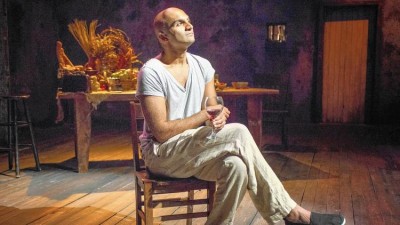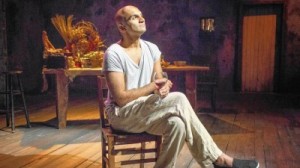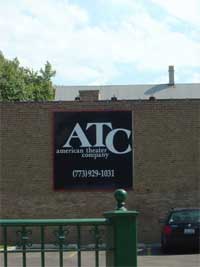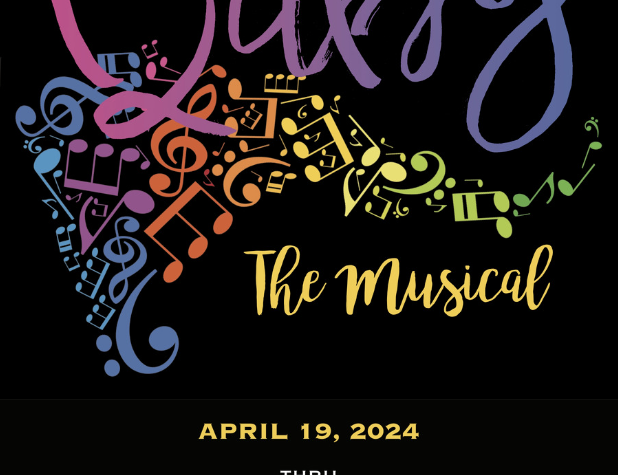
 Somewhat Recommended ** The American Theatre Company is producing Anna Deavere Smith’s “Let Me Down Easy” as part of its series on healthcare in America. The play is written for one actor who has to change between twenty characters of different races, ages, ethnicities, and genders as he performs dialogue taken verbatim from her interviews with real people: famous, unknown, and everywhere in between. Each character is allotted a very small portion of time on stage, but, by and large, we are not sorry to see them disappear. I understand that great things have been accomplished by writers willing to blur the distinction between genres. In the middle of the 20thc, Truman Capote’s “non-fiction novel” In Cold Blood brought novelistic techniques to journalism. However, by turning portions of twenty different interviews into a play, Smith has stripped Theatre of two of its most important features: dialogue and character, and made herself an editor instead of a Pulitzer Prize nominated playwright.
Somewhat Recommended ** The American Theatre Company is producing Anna Deavere Smith’s “Let Me Down Easy” as part of its series on healthcare in America. The play is written for one actor who has to change between twenty characters of different races, ages, ethnicities, and genders as he performs dialogue taken verbatim from her interviews with real people: famous, unknown, and everywhere in between. Each character is allotted a very small portion of time on stage, but, by and large, we are not sorry to see them disappear. I understand that great things have been accomplished by writers willing to blur the distinction between genres. In the middle of the 20thc, Truman Capote’s “non-fiction novel” In Cold Blood brought novelistic techniques to journalism. However, by turning portions of twenty different interviews into a play, Smith has stripped Theatre of two of its most important features: dialogue and character, and made herself an editor instead of a Pulitzer Prize nominated playwright.
I realize that in real life people constantly use the words “like,” “um,” “you know,” and “eh” extra-grammatically. In fact, I can be one of the worst offenders, but nobody wants to hear it for two hours on stage. Also, this shouldn’t have been as much of a problem in interviews, but I get the sense that Smith is not a very good interviewer. The audience never hears her prompts or questions, but she is rarely able to keep her subjects on any topic let alone healthcare or end of life issues. I understand that Eve Ensler has rather a one track mind, but surely Anne Richard’s has something to say about the state of healthcare. Sometimes the character’s monologues are only tangentially related to healthcare, sometimes not at all. Some bits are just bizarre: the choreographer who talks about catching on fire as though it was a theoretical, not visceral experience, and I don’t recall every finding out whether or not her insurance covered it. I doubt she was being completely honest about the nature of the experience. I know Lance Armstrong wasn’t honest is in his interview, but the largest problem for the audience wasn’t the lack of honesty, or a lack of unity, which was considerable even given the fact that these monologues have pulled from twenty different interviews. It was the lack of sympathy we feel for these characters which is particularly fatal as they represent real-life counterparts.
The most notable and affecting exception is a doctor who speaks of the brutal institutionalized sexism, racism, and plain bigotry that her patients in the New Orleans ninth ward had to deal with before, during, and after Hurricane Katrina. She sticks in the mind as one of Smith’s subjects who draws attention to how healthcare affects people other than themselves. I don’t believe all these people are as self-absorbed as they appeared on stage; I think Smith, a gifted playwright, has failed as an interviewer (Even the director of a South African orphanage sounded self-absorbed which I doubt very much she is). By the end, nobody has discussed what it means to run a healthcare system for profit, to make money off disease, and withhold life-saving medicine if a patient can’t afford it. Nobody has discussed whether it is cruel to keep people alive who are suffering when we would euthanize our pets. People in the favor status quo have argued that one is good policy, the other a moral statement about human’s special status as self-conscious beings. By the end of the play, we have no new emotional or intellectual data with which to decide. A single doctor does address end of life care directly, but does so in a way so inarticulately that it could easily be misrepresented and used for fear-mongering.
Usman Ally, under the direction of Bonnie Metzgar, gives a very talented performance and watching him shift dexterously from character to character of various ages, gender, and races is a lot of fun, but they inevitably become caricatures. There is no way for any actor, writer, or director to get at the humanity of twenty people who are given about five minutes each to speak so Metzgar and Ally wisely focuses on convincing us that Ally is different people, and he is remarkably successful at it. Although his accents and voice changes might not deceive a master of dialects, they were very convincing given their variety. He is also good at delivering a lot of the lines with humor, and neither Ally or Metzgar afraid of embracing caricature. “Let Me Down Easy” is playing through October 10th at “The American Theatre Company” which is located at 1909 W. Byron Street. Performances are Thursday, September 23rd through Saturday at 8 p.m. running time around one hour.. There is a performance Sunday, September 28th at 2:00 pm. After that, performances are Tuesday-Fridays at 8 pm with a Saturday matinee . Tickets are between 43 and 48 dollars and available at http://www.atcweb.org/bxo/boxoffice.php or by calling 773-409-4125
To see what others are saying, viist www.theatreinchicago.com, go to Review Round-up and click at “Let Me Down Easy”.






More Stories
“How to Know the Wild Flowers: A Map” reviewed by Julia W. Rath
“Baby: the Musical”
“Nana” reviewed by Jacob Davis